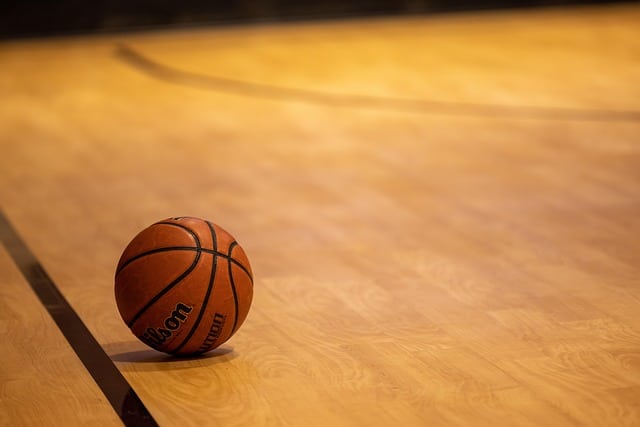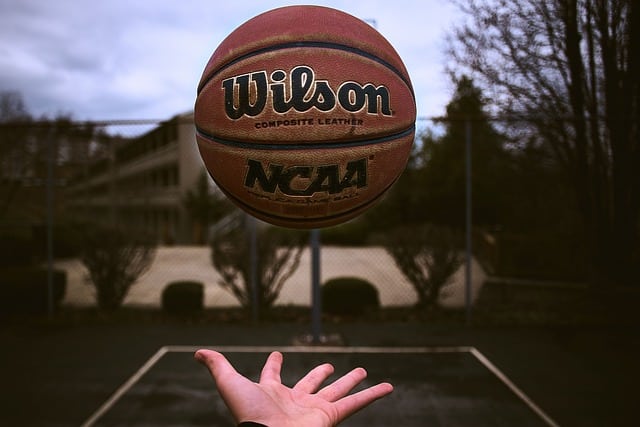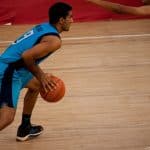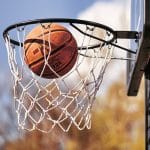When you’re on the basketball court, every step, jump, and sprint requires energy. It’s not just about how hard you work during practice or the game—it’s also about how well you fuel your body for that performance. The truth is, a strong body needs more than just hours at the gym or endless drills. It needs the right nutrition. A properly fueled athlete doesn’t just survive; they thrive.
Whether you’re an aspiring pro or just a weekend warrior, understanding the importance of basketball nutrition is a game-changer. From pregame meals to postgame recovery, nutrition strategies for basketball players can significantly impact your energy levels, stamina, and overall performance. So let’s dive into the world of nutrition and learn how to fuel your body for peak performance on the court.
1. Pregame Nutrition: Set the Foundation for Success
When it comes to basketball, you’ve probably heard the saying, “You are what you eat.” Well, in this case, it’s true. What you consume before hitting the court directly impacts your performance. Pregame nutrition tips are crucial for ensuring you have the energy and focus to dominate throughout the game.
The ideal pregame meal should be balanced—a combination of carbohydrates, protein, and healthy fats. Carbs are your body’s primary energy source, so you’ll want to make sure you’re stocked up on them before the game. Think whole grains, fruits, and vegetables. The protein helps with muscle repair and gives you the endurance you need during high-intensity bursts. And let’s not forget healthy fats. They might not provide immediate energy, but they’re essential for long-term performance and joint health.
When to Eat?
Timing is key here. Aim to eat your main meal about 2-3 hours before the game. This gives your body time to digest and start converting food into usable energy. A great pregame meal might be a chicken and quinoa salad with some avocado, or a turkey sandwich on whole-grain bread with a side of fruit.
If you’re really crunched for time, a small snack 30-60 minutes before tip-off can still do wonders. Opt for something easily digestible, like a banana with peanut butter or an energy bar that’s low in sugar and high in protein.

2. Hydration Strategies for Athletes: Keep the Tank Full
We’ve all heard about how important hydration is for athletes, but just how much water do you really need? Well, let’s get one thing straight: dehydration is a silent performance killer. If you’re not properly hydrated, your body will run out of gas quicker than you can say “fast break.”
Hydration isn’t just about drinking water right before or during the game. Water intake should start well before game time—ideally, 24-48 hours before, especially if you’re playing in hot or humid conditions. In the hours leading up to the game, drink about 16-20 ounces of water every 2-3 hours.
During the game, make sure you’re sipping water regularly. For intense games, where you’re sweating buckets, consider adding sports drinks with electrolytes to replace lost minerals and maintain balance. But be cautious—some of those drinks are loaded with sugars, so look for options with low sugar content or natural alternatives.
3. Protein and Carbohydrate Intake: The Dynamic Duo
When we talk about nutrient timing for athletes, we’re talking about when to fuel your body for the best results. A lot of players focus on protein for muscle recovery, but you can’t forget the power of carbohydrates. It’s all about balance.
Carbohydrates are your primary source of energy, especially for activities that require quick, explosive movements like basketball. Think of them as the gas in your car—without it, you won’t be able to go anywhere. Carbs are stored as glycogen in your muscles, ready to be tapped into for energy during those breakaway sprints or deep defensive slides. But that doesn’t mean protein should take a backseat.
Protein plays a critical role in muscle repair and building strength. During intense games, you’re putting your body through a lot. Protein helps keep your muscles from breaking down and helps them repair afterward. So, whether you’re eating a pregame meal or recovering postgame, make sure your diet is well-rounded with both carbs and protein.
A good rule of thumb for carbohydrate intake is to consume about 3-4 grams of carbs per pound of body weight per day, especially leading up to big games. For protein, aim for 0.6-1 gram per pound of body weight to support muscle recovery and performance.
4. Postgame Recovery Meals: Rebuild and Recharge
After the final buzzer sounds, your body is still working. You’ve just put it through a high-intensity game, and now it’s time to recover. Postgame recovery meals are your opportunity to repair your muscles, replace lost nutrients, and rebuild energy stores.
The goal of postgame nutrition is to refuel and repair. You need a mix of protein and carbohydrates, but you also want to make sure you’re adding healthy fats to keep your joints and tissues in top shape.
The ideal recovery meal should be eaten within 30-45 minutes after the game, as this is the optimal time to absorb nutrients. A smoothie made with protein powder, banana, almond butter, and spinach is a great recovery drink. Or, go for a classic postgame meal like grilled chicken with brown rice and steamed veggies.
One key part of the recovery process is replenishing your glycogen stores (the carbs your body burns during the game). Carbs are essential here because they help your muscles recover and rebuild. The quicker you can refuel your body, the faster you’ll recover and be ready for the next game or practice.
5. Healthy Snacks for Performance: Fuel Between Meals
Let’s face it, you can’t always be eating full meals throughout the day, especially if you’re in the middle of a busy practice or have a long break between games. But that doesn’t mean you can’t still fuel your body with the right snacks.
Healthy snacks are essential for keeping your energy levels stable and preventing that dreaded energy dip halfway through practice. Choose snacks that combine carbohydrates and protein for the best results. Greek yogurt with berries, a protein bar with nuts and oats, or whole grain crackers with cheese are all good choices.
Avoid highly processed snacks like chips or candy—they may give you a quick burst of energy, but they’ll crash your system just as quickly, leaving you sluggish and unable to perform at your best.
6. Supplements for Basketball Players: The Extra Edge
While a balanced diet should be your priority, some players look to supplements to give them an extra edge. Supplements like creatine, BCAAs (branched-chain amino acids), and omega-3 fatty acids can support muscle recovery, improve endurance, and reduce inflammation.
Before diving into supplements, always consult with a healthcare provider or nutritionist to make sure they align with your goals. Supplements aren’t a magic bullet—they should complement a healthy, well-rounded diet, not replace it.
7. A Sample Basketball Diet Plan
To make things simpler, here’s a sample basketball diet plan for a typical day:
- Breakfast: Scrambled eggs with spinach and whole grain toast; a smoothie with banana, protein powder, and almond milk.
- Mid-Morning Snack: Greek yogurt with honey and mixed nuts.
- Lunch: Grilled chicken with quinoa, sweet potatoes, and a side of steamed vegetables.
- Pre-Game Snack: A banana with peanut butter or an energy bar.
- Post-Game Meal: Grilled salmon with brown rice and broccoli or a protein shake with carbs.
- Evening Snack: Hummus with carrots or whole grain crackers with turkey slices.
Conclusion
Basketball nutrition is about much more than just eating the right foods. It’s about creating a holistic approach to fueling your body for peak performance on the court. From pregame nutrition tips to postgame recovery meals, each meal is an opportunity to support your training, build strength, and stay energized.
Stay consistent with your hydration strategies, practice nutrient timing, and listen to your body. Don’t rely on supplements to make up for a poor diet. Focus on protein, carbohydrates, and healthy fats to ensure you’re fueling your body the right way.
Fuel up, stay energized, and get ready to dominate the game! 🏀💪



